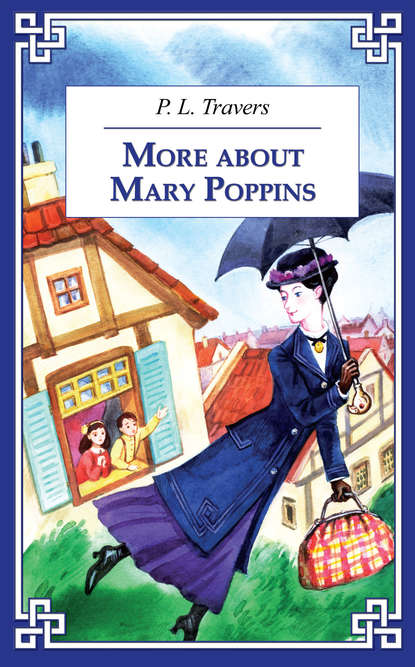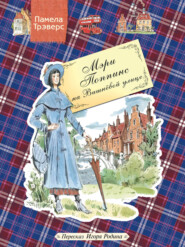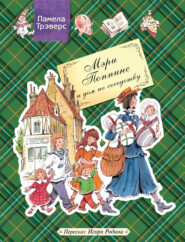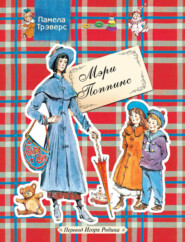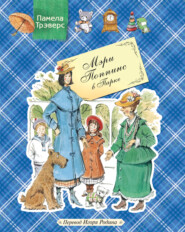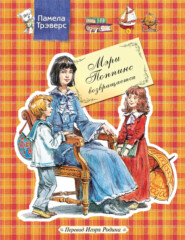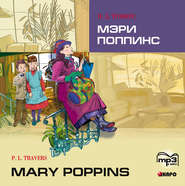По всем вопросам обращайтесь на: info@litportal.ru
(©) 2003-2025.
✖
More about Mary Poppins / И снова о Мэри Поппинз
Настройки чтения
Размер шрифта
Высота строк
Поля
All round her flew the birds, circling and leaping and swooping and rising. Mary Poppins always called them “sparrers,”* because, she said conceitedly, all birds were alike to her. But Jane and Michael knew that they were not sparrows, but doves and pigeons. There were fussy and chatty grey doves like Grandmothers; and brown, rough-voiced pigeons like Uncles; and greeny, cackling, no-I’ve-no-money-today pigeons like Fathers. And the silly, anxious, soft blue doves were like Mothers. That’s what Jane and Michael thought, anyway.
They flew round and round the head of the Bird Woman as the children approached, and then, as though to tease her, they suddenly rushed away through the air and sat on the top of St. Paul’s, laughing and turning their heads away and pretending they didn’t know her.
It was Michael’s turn to buy a bag. Jane had bought one last time. He walked up to the Bird Woman and held out four halfpennies.
“Feed the Birds, Tuppence a Bag!” said the Bird Woman, as she put a bag of crumbs into his hand and tucked the money away into the folds of her huge black skirt.
“Why don’t you have penny bags?” said Michael. “Then I could buy two.”
“Feed the Birds, Tuppence a Bag!” said the Bird Woman, and Michael knew it was no good asking her any more questions. He and Jane had often tried, but all she could say, and all she had ever been able to say was, “Feed the Birds, Tuppence a Bag!” Just as a cuckoo can only say “Cuckoo,” no matter what questions you ask him.
Jane and Michael and Mary Poppins spread the crumbs in a circle on the ground, and presently, one by one at first, and then in twos and threes, the birds came down from St. Paul’s.
“Dainty David,*” said Mary Poppins with a sniff, as one bird picked up a crumb and dropped it again from its beak.
But the other birds swarmed upon the food, pushing and scrambling and shouting. At last there wasn’t a crumb left, for it is not really polite for a pigeon or a dove to leave anything on the plate. When they were quite certain that the meal was finished the birds rose with one grand, fluttering movement and flew round the Bird Woman’s head, copying in their own language the words she said. One of them sat on her hat and pretended he was a decoration for the crown. And another of them mistook Mary Poppins’s new hat for a rose garden and pecked off a flower.
“You sparrer!” cried Mary Poppins, and shook her umbrella at him. The pigeon, very offended, flew back to the Bird Woman and, to pay out* Mary Poppins, stuck the rose in the ribbon of the Bird Woman’s hat.
“You ought to be in a pie* – that’s where you ought to be,” said Mary Poppins to him very angrily. Then she called to Jane and Michael.
“Time to go,” she said, and flung a parting glance of fury at the pigeon. But he only laughed and flicked his tail and turned his back on her.
“Good-bye,” said Michael to the Bird Woman.
“Feed the Birds,” she replied, smiling.
“Good-bye,” said Jane.
“Tuppence a Bag!” said the Bird Woman and waved her hand.
They left her then, walking one on either side of Mary Poppins.
“What happens when everybody goes away – like us?” said Michael to Jane.
He knew quite well what happened, but it was the proper thing to ask Jane because the story was really hers.
So Jane told him and he added the bits she had forgotten.
“At night when everybody goes to bed – ” began Jane.
“And the stars come out,” added Michael.
“Yes, and even if they don’t – all the birds come down from the top of St. Paul’s and run very carefully all over the ground just to see there are no crumbs left, and to tidy it up for the morning. And when they have done that – ”
“You’ve forgotten the baths.”
“Oh, yes – they bath themselves and comb their wings with their claws. And when they have done that they fly three times round the head of the Bird Woman and then they settle.”
“Do they sit on her shoulders?”
“Yes, and on her hat.”
“And on her basket with the bags in it?”
“Yes, and some on her knee. Then she smooths down the head-feathers of each one in turn and tells it to be a good bird – ”
“In the bird language?”
“Yes. And when they are all sleepy and don’t want to stay awake any longer, she spreads out her skirts, as a mother hen spreads out her wings, and the birds go creep, creep, creeping underneath. And as soon as the last one is under she settles down over them, making little brooding, nesting noises and they sleep there till the morning.”
Michael sighed happily. He loved the story and was never tired of hearing it.
“And it’s all quite true, isn’t it?” he said, just as he always did.
“No,” said Mary Poppins, who always said “No.”
“Yes,” said Jane, who always knew everything…
Mrs Corry
“Two pounds of sausages – Best Pork,” said Mary Poppins. “And at once, please. We’re in a hurry.”
The Butcher, who wore a large blue-and-white striped apron, was a fat and friendly man. He was also large and red and rather like one of his own sausages. He leant upon his chopping-block and gazed admiringly at Mary Poppins. Then he winked pleasantly at Jane and Michael.
“In a Nurry?*” he said to Mary Poppins. “Well, that’s a pity. I’d hoped you’d dropped in for a bit of a chat. We Butchers, you know, like a bit of company. And we don’t often get the chance of talking to a nice, handsome young lady like you – ” He broke off suddenly, for he had caught sight of Mary Poppins’s face. The expression on it was awful. And the Butcher found himself wishing there was a trap-door in the floor of his shop that would open and swallow him up.
“Oh, well – ” he said, blushing even redder than usual. “If you’re in a Nurry, of course. Two pounds, did you say? Best Pork? Right you are!”
And he hurriedly hooked down a long string of the sausages that were festooned across the shop. He cut off a length – about three-quarters of a yard – wound it into a sort of garland, and wrapped it up first in white and then in brown paper. He pushed the parcel across the chopping-block.
“AND the next?” he said hopefully, still blushing.
“There will be no next,” said Mary Poppins, with a haughty sniff. And she took the sausages and turned the perambulator round very quickly, and wheeled it out of the shop in such a way that the Butcher knew he had mortally offended her. But she glanced at the window as she went so that she could see how her new shoes looked reflected in it. They were bright brown kid with two buttons, very smart.
Jane and Michael trailed after her, wondering when she would have come to the end of her shopping-list but, because of the look on her face, not daring to ask her.
Mary Poppins gazed up and down the street as if deep in thought, and then, suddenly making up her mind, she snapped,
“Fishmonger!” and turned the perambulator in at the shop next to the Butcher’s.
“One Dover Sole, pound and a half of Halibut, pint of Prawns and a Lobster,” said Mary Poppins, talking so quickly that only somebody used to taking such orders could possibly have understood her.
The Fishmonger, unlike the Butcher, was a long thin man, so thin that he seemed to have no front to him but only two sides. And he looked so sad that you felt he had either just been weeping or was just going to. Jane said that this was due to some secret sorrow that had haunted him since his youth, and Michael thought that the Fishmonger’s Mother must have fed him entirely on bread and water when he was a baby, and that he had never forgotten it.
“Anything else?” said the Fishmonger hopelessly, in a voice that suggested he was quite sure there wouldn’t be.
“Not today,” said Mary Poppins.





